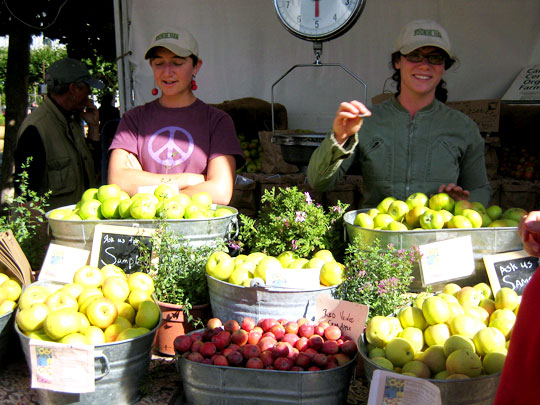Greens plan to slash supply chains
 The Greens are pushing an $85 million policy to shorten supply chains and improve access to locally-grown foods, but it is unclear what it might mean for transport operators.
The Greens are pushing an $85 million policy to shorten supply chains and improve access to locally-grown foods, but it is unclear what it might mean for transport operators.
The Greens have launched the policy that would see millions awarded in grants to promote infrastructure and initiatives that connect farmers and local communities, according to the policy document: “With one of the most concentrated food retail sectors in the world dominated by the supermarket duopoly, the barriers to making it easy to buy local food in Australia are significant. It is time for Australia to rebuild local food systems.”
The initiate includes plans to start farmers markets, mobile markets and community food-box schemes, creating producer cooperatives, fitting out local food hubs for packaging to add value to local food and a creating and marketing a regional food brand.
All of these efforts will at some point require transports of goods, but the basis of the plan seems to be for produce not to move far from its origin, which may limit some long-distance routes currently used.
“These types of local food systems give farmers viable alternatives to low margin, high volume supply contracts. They provide an entry point for sales for growers just starting out, and the opportunity to diversify crops and value-add for greater returns,” according to the Greens policy, “supporting local food systems creates opportunities for farmers in a district to collaborate and create an authentic local brand that can attract premium prices. The King Island and Margaret River brands are good examples of existing brands.
The plan is based on a similar project introduced in the United States by President Barack Obama, North America’s ‘Know Your Farmer, Know Your Food’ program targeted investment in rebuilding local and regional food systems. The program has been called a success by many for responding to the demand from communities and farmers for alternative paths to market and access to local food, and helping low income families access a healthier standard of eating.








 Print
Print